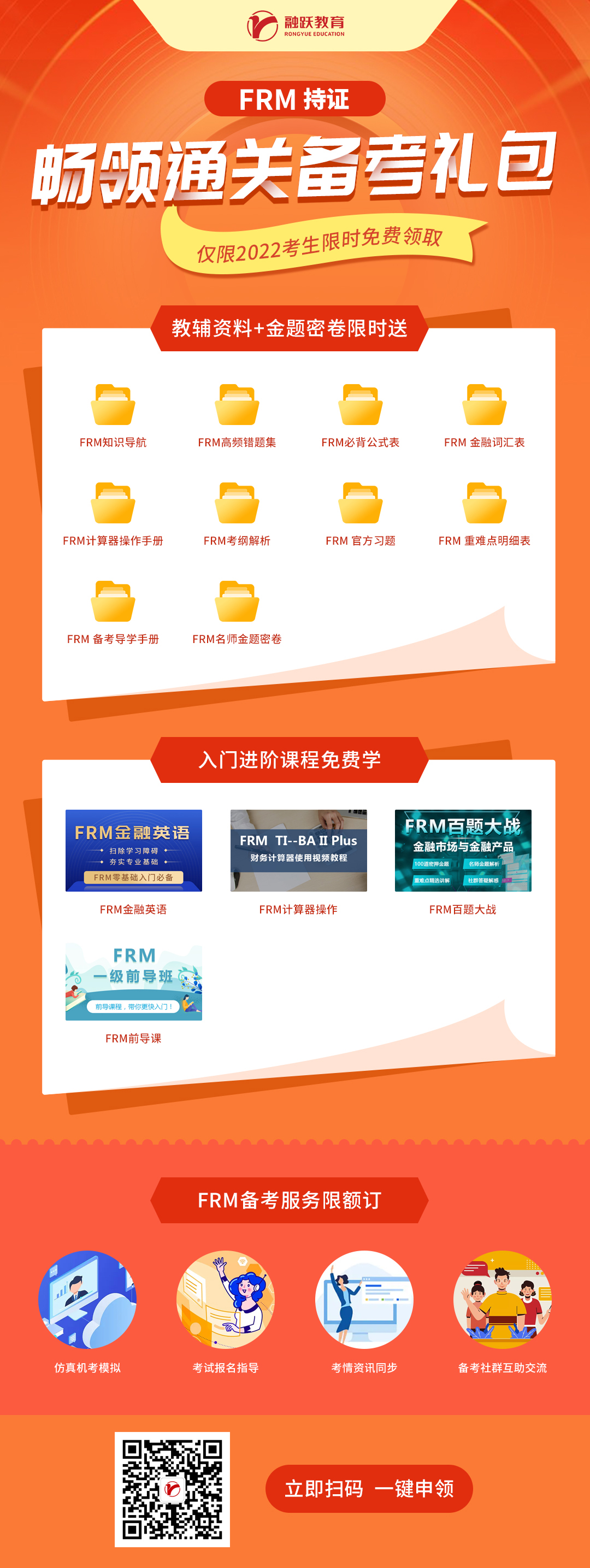在每年的FRM备考中,尤其是冲洗阶段,考生有很多的真题练习室需要做的,这对于顺利通 关考试是很有帮助的,下面是小编整理的真题解析,希望对备考的你有所帮助!
You are doing analysis on hedge funds investing, you are curious that one hedge fund who reported returns each year for the last 10 years has stopped reporting. Some of your friends told you that the fund has suffered a big loss this year. This reflects:
A) Infrequent trading bias.
B) Unsmoothing returns.
C) Sample selection bias.
D) Survivorship bias.
答案:D
解析:There are no requirements for certain types of funds, like private equity funds, to report returns. As such, poorly performing funds have a tendency to stop reporting.
Additionally, many poorly performing funds ultimately fail. Performance studies generally include only those funds that were successful enough to survive over the entire period of analysis, leaving out the returns of funds that no longer exist. Both of these factors result in reported returns that are too high. This is called survivorship bias.
Which of the following variables is not an illiquidity factor that affects equity returns?
A) On the run/off the run.
B) Trading Frequency.
C) Bid-ask spread.
D) Quote size
答案:A

解析:There are several variables related to illiquidity that are shown to impact equity returns. They are bid-ask spreads, volume, turnover, volume measured by whether the trade was initiated by buyers or sellers, the ratio of absolute returns to dollar volume, the price impact of large trades, informed trading measures (i.e., adverse selection), quote size and depth, the frequency of trades, the number of zero returns, and return autocorrelations. On the run/off the run spread is illiquidity phenomenon you observe in U.S Treasury markets.
希望以上的内容对你有所帮助!如果您想了解更多FRM考试相关问题,添加融跃FRM老师微信(rongyuejiaoyu),给您专业的指导帮助!
- 报考条件
- 报名时间
- 报名费用
- 考试科目
- 考试时间
-
GARP对于FRM报考条件的规定:
What qualifications do I need to register for the FRM Program?
There are no educational or professional prerequisites needed toregister.
翻译为:报名FRM考试没有任何学历或专业的先决条件。
可以理解为,报名FRM考试没有任何的学历和专业的要求,只要是你想考,都可以报名的。查看完整内容 -
2024年5月FRM考试报名时间为:
早鸟价报名阶段:2023年12月1日-2024年1月31日。
标准价报名阶段:2024年2月1日-2024年3月31日。2024年8月FRM考试报名时间为:
早鸟价报名阶段:2024年3月1日-2024年4月30日。
标准价报名阶段:2024年5月1日-2024年6月30日。2024年11月FRM考试报名时间为:
早鸟价报名时间:2024年5月1日-2024年7月31日。
标准价报名时间:2024年8月1日-2024年9月30日。查看完整内容 -
2023年GARP协会对FRM的各级考试报名的费用作出了修改:将原先早报阶段考试费从$550上涨至$600,标准阶段考试费从$750上涨至$800。费用分为:
注册费:$ 400 USD;
考试费:$ 600 USD(第一阶段)or $ 800 USD(第二阶段);
场地费:$ 40 USD(大陆考生每次参加FRM考试都需缴纳场地费);
数据费:$ 10 USD(只收取一次);
首次注册的考生费用为(注册费 + 考试费 + 场地费 + 数据费)= $1050 or $1250 USD。
非首次注册的考生费用为(考试费 + 场地费) = $640 or $840 USD。查看完整内容 -
FRM考试共两级,FRM一级四门科目,FRM二级六门科目;具体科目及占比如下:
FRM一级(共四门科目)
1、Foundations of Risk Management风险管理基础(大约占20%)
2、Quantitative Analysis数量分析(大约占20%)
3、Valuation and Risk Models估值与风险建模(大约占30%)
4、Financial Markets and Products金融市场与金融产品(大约占30%)
FRM二级(共六门科目)
1、Market Risk Measurement and Management市场风险管理与测量(大约占20%)
2、Credit Risk Measurement and Management信用风险管理与测量(大约占20%)
3、Operational and Integrated Risk Management操作及综合风险管理(大约占20%)
4、Liquidity and Treasury Risk Measurement and Management 流动性风险管理(大约占15%)
5、Risk Management and Investment Management投资风险管理(大约占15%)
6、Current Issues in Financial Markets金融市场前沿话题(大约占10%)查看完整内容 -
2024年FRM考试时间安排如下:
FRM一级考试:
2024年5月4日-5月17日;
2024年8月3日(周六)上午;
2024年11月2日-11月15日。FRM二级考试:
2024年5月18日-5月24日;
2024年8月3月(周六)下午;
2024年11月16日-11月22日。查看完整内容
-
中文名
金融风险管理师
-
持证人数
25000(中国)
-
外文名
FRM(Financial Risk Manager)
-
考试等级
FRM考试共分为两级考试
-
考试时间
5月、8月、11月
-
报名时间
5月考试(12月1日-3月31日)
8月考试(3月1日-6月30日)
11月考试(5月1日-9月30日)








